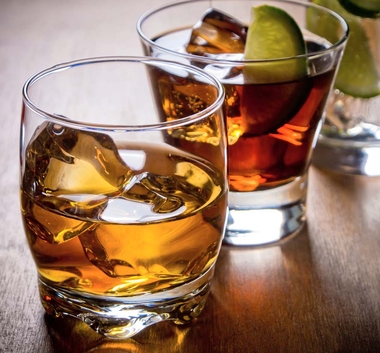Forced to smile at work? You might drink more away from the job

If you have to deal with the public on the job -- especially in retail or restaurants -- you know the drill: Flash those pearly whites, even when you don't want to.
But there may be a price for all of that coerced smiling: You might drink more when you get off work.
That's the main finding coming out of a recent study in the Journal of Occupational Health Psychology, in which researchers from Penn State and the University of Buffalo looked at the drinking habits of people who have to work with the public. They found a link between the fake smiles and increased instances of "knocking a few back" after work.
"Faking and suppressing emotions with customers was related to drinking beyond the stress of the job or feeling negatively," Alicia Grandey, a psychology professor at Penn State, told Penn State News. "It wasn't just feeling badly that makes them reach for a drink. Instead, the more they have to control negative emotions at work, the less they are able to control their alcohol intake after work."
Grandey urged employers to rethink policies where employees have to serve up "service with a smile" because that might be something of a health hazard for workers.
The downside of "surface acting"
Grandey and the other researchers examined data that came from a previous survey called the National Survey of Work Stress and Health, comprising phone interviews with 1,592 workers in the United States. These workers were asked how often they faked their smiles (called surface acting), how often they drank after work, how much control they feel they have on the job and how impulsive they are.
"The relationship between surface acting and drinking after work was stronger for people who are impulsive or who lack personal control over behavior at work," Grandey said. "If you're impulsive or constantly told how to do your job, it may be harder to rein in your emotions all day, and when you get home, you don't have that self-control to stop after one drink."
The link between forced smiles and drinking is especially strong in employees who are impulsive and who work in jobs where they only have one-time encounters with customers -- like the clerk who rings you up at the mall -- as opposed to, say, health care workers, who develop more of a long-term relationship with patients.
Age may play a part in this too. The researchers note that most workers in retail and restaurant work tend to be younger, and in entry-level jobs, so they may not have the self-control needed to fake a smile and not overdrink later at home or at a bar.
Grandey suggested employers use the findings from the study to construct more desirable work settings for their employees.
"Employers may want to consider allowing employees to have a little more autonomy at work, like they have some kind of choice on the job," Grandey said. "And when the emotional effort is clearly linked to financial or relational rewards, the effects aren't so bad."
By Doug Criss, CNN via The-CNN-Wire™ & © 2019 Cable News Network, Inc., a Time Warner Company. All rights reserved.
The Gayly 4/15/2019 @ 11:05 p.m. CST.





